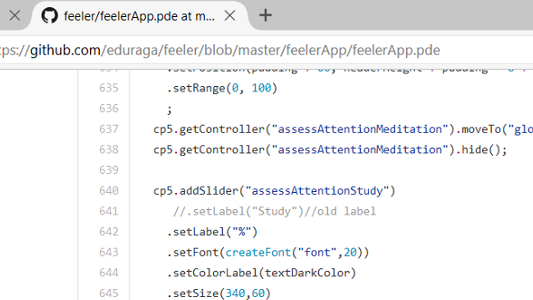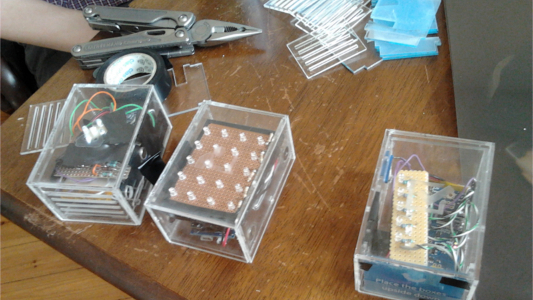Sometimes it’s easy to get focused on studies, sometimes it just doesn’t happen. The ability to focus attention is a habit of mind and like any other habit, it can be learned. The first step for gaining control on your concentration skills starts with awareness. Becoming aware of when you are attentive or anxious is key for understanding what challenges your ability to focus and find strategies for overcoming the obstacles.
Feeler combines self-monitoring of electroencephalographic activity (EEG) and screen activity with a specific script that guides your activity during a study session. By tracking your levels of attention and relaxation, Feeler aims to create awareness about how different activities affect your ability to focus when doing academic tasks.
How well do you know yourself? The Feeler app visual dashboard contrasts the data captured automatically with your personal impressions. At the end of each Feeler study session you can compare how attentive and relaxed you felt with the attention and relaxation levels captured by the EEG device. Feeler doesn’t give advice nor tell what’s right or wrong about the collected data. Instead, it aims to help you know yourself and gain awareness about how your mental states affect your ability to learn.
Feeler is still under development and is part of a doctoral research at Aalto University School of Arts, Design and Architecture. This research has been conducted at the Learning Environments research group under the guidance of T. Leinonen (Aalto University Media Lab) and B. Gros (Universitat de Barcelona).
Feeler asks you to follow a specific script of activities. This allows you to compare how attentive and relaxed you were when performing different tasks, but it also helps you to understand how different practices affect your mental states.
Try 5 minutes meditation through calm breathing before focusing on your work. Mindful meditation has been recognized as powerful practice for enhancing attention and reducing stress and anxiety, so why not starting your study session with a short meditation exercise?
Feeler helps you identify the impact of certain activities, like multitasking, on your cognitive performance. The more aware you are about how different habits affect your ability to focus, the more ready you would be to change them.
Challenge your attention with a memory game after a study session. Research has shown that play is an important way of learning. Have fun and find out how your attention and relaxation levels vary when playing!
Feeler consists of a desktop app and three guide boxes that communicate with an EEG headset. Use Feeler desktop app to start recording data. Each Feeler box is dedicated to a specific activity (meditation, study and play) and will guide you through different types of feedback. Once a session has been completed, you can review your data on the desktop app.
Your data is yours and should remain under your control. Feeler technology is built under the assumption that privacy and ownership go first. Thus, the data gathered through Feeler is stored in your computer.
Access the different brainwaves data and gain deeper understandings. In addition to attention and relaxation, Feeler also stores data about delta, alpha, theta, beta and gamma brainwaves. You can export the raw data of each session from the Feeler desktop app.
Feeler hardware and software are free and open-source. Download the files and hack Feeler according to your needs.
GitHub repository: work in progress

